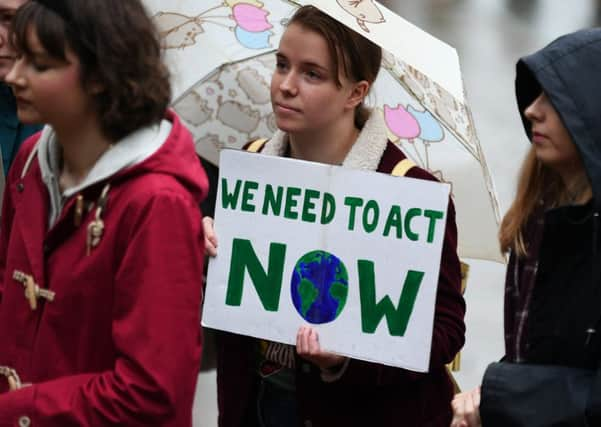Why we all need to be ‘climate ready’ – Catherine Gee


The eyes of the world will be on Scotland later this year as global leaders gather in Glasgow for the COP26 climate change summit – and the stakes could not be higher. This could be the last chance for global leaders to agree the cuts in greenhouse gas emissions which will help to save our planet (and ourselves) from the devastating impacts of irreversible climate change.
Glasgow in November, therefore, will be a watershed. The time for political posturing and delay has long since passed. Governments must step up and agree how we’ll reduce our greenhouse gas emissions to net-zero by 2050. More than that, they should follow this with rapid and decisive action, putting the needs of our planet before economic gain.
Advertisement
Hide AdAdvertisement
Hide AdYet, while tremendous pressure is rightly mounting on our leaders to drive the change we need, they alone cannot solve our problems. Overcoming the climate crisis is a collective challenge, one in which we must all play a part. We must work with people from the ground up as well to have any chance of achieving the changes that are required.
Thankfully, there is a real desire for action in our communities. The proportion of adults who view climate change as an immediate and urgent problem has grown from fewer than half in 2013 to almost two-thirds in 2018, according to the Scottish Household Survey. It has also been confirmed that MSPs, academics, industry and environmental organisations are joining forces to support ambitious new emissions targets, with a Citizens’ Assembly on climate change soon to be established in Scotland.
Simple steps
COP26 is undoubtedly a remarkable opportunity for Scotland to showcase its ongoing push to tackle climate change, not least its world-leading target of net-zero emissions by 2045. More than that though, it provides the perfect chance to have a conversation with family, friends and neighbours about the future of our planet; inspiring us to question, learn and share to radically reduce carbon emissions.
Change can start with simple steps. We can make carbon savings by flying and driving less, using public transport and cycling and walking more and buying fewer items transported over many miles. We can also reduce the amount of energy we use to run our homes.
The food and drink we choose impacts our greenhouse gas emissions too. Have a think about how you could take steps to grow your own food or make sure that you buy local and in-season produce. Reducing our demand for raw materials, new products and making things last would also help reduce greenhouse gas emissions. As would cutting the amount of packaging we use – and it would also lead to less waste and litter.
But, do we really understand the problem and actions needed? Our experience is that we often don’t. The science behind climate change and the steps we should all take to reduce our carbon footprint can be daunting. Yet we must be climate ready, armed with knowledge, if we are to risk doing harm rather than good. Misinformation and the unintended consequences of trying to do the right thing – but getting it wrong – can be dangerous.
Dire consequences
That’s why we offer Carbon Literacy training. This helps people to understand more about climate change, the greenhouse gas impact of everyday activities and provides them with the ability and motivation to reduce emissions. The training is available to anyone to help them become climate ready – be that in schools, communities or businesses.
What scientists have warned for decades now is happening. Our planet is getting warmer and our climate is changing – with dire consequences for flora and fauna, as well as for people. There is no time for deniers. We know that our weather is becoming more extreme and unpredictable resulting in droughts, wildfires and flooding and the ecosystems and infrastructure that we depend on are being damaged.
Advertisement
Hide AdAdvertisement
Hide AdThe arrival of COP26 to Scotland should be a catalyst for our climate conversations to intensify. If we all take time to learn about the issues and what we can do, share it with those around us, inspiring them to act, imagine the positive impact that we can realise. Global challenges are not unachievable if tackled together.
The Climate Strikes have shown that there is real appetite for change, so the pressure is on politicians to achieve a positive result from COP26. But let’s not wait for them to solve this crisis alone. We all need to be climate ready. The time to act is now.
Catherine Gee is operations director at charity Keep Scotland Beautiful